Why go hiking with a guide?
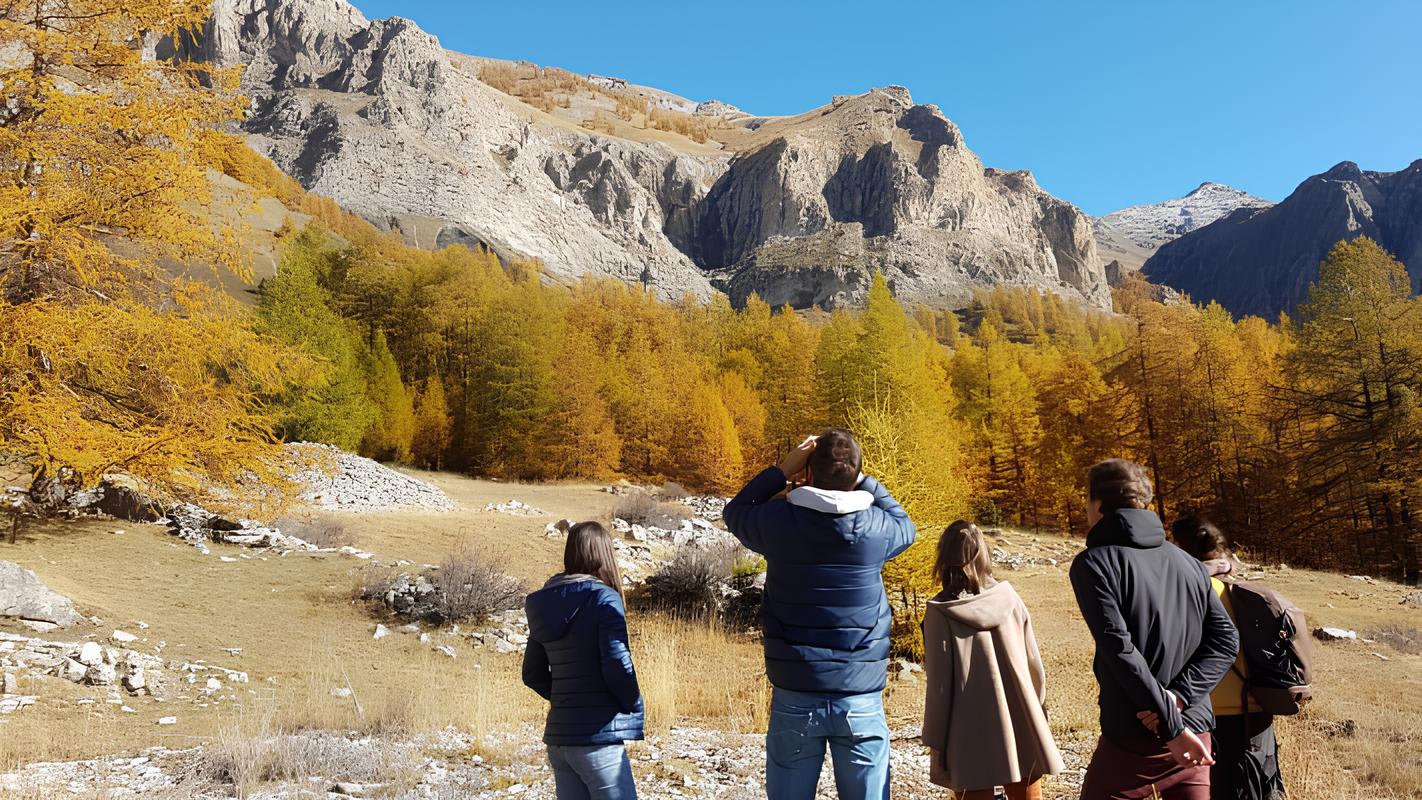
This is a question you're bound to have asked yourself if you're planning to go hiking: should I go with a guide? Generally, it's easy to think only of the "safety" aspect and to tell yourself that, as the hike is easy, there's no need to be accompanied by a guide. However, there are many other aspects to a guided walk that make it an enriching and beneficial experience, and one that should not be overlooked.
Hiking is a sporting activity that involves walking along marked trails in the middle of nature. Nothing simpler, you might ask? But hiking is much more than that! Depending on the difficulty of the terrain, the distance covered, the weather and even the country in which you have decided to go hiking, there are many variables that mean you will have a different experience every time! Of course, each place also has its own unique fauna, flora, culture and history.
Another factor that could totally change your hiking experience is whether you go with or without a guide. Indeed, going hiking alone allows you to enjoy greater freedom and autonomy. However, this isn't always possible, and when it is, it requires a lot of logistical organisation, as well as a lot of research if you really want to get to know your destination. So without further ado, here are 6 reasons why you should go hiking with a guide.
1. To do hikes inaccessible without a guide

Hiking with a guide is sometimes essential, as some hikes are inaccessible without a guide. Indeed, conditions are sometimes too dangerous to allow hikers to go out on their own. For safety reasons, anyone wishing to explore certain high-risk natural sites such as volcanoes, glaciers or avalanche-prone areas should always set off with a guide who knows the area inside out. For example, if you want to go hiking on Mount Etna, you are strongly advised to go with a guide because of the unpredictable nature of volcanic activity and the difficulty of the terrain. For more information on this subject, take a look at our complete guide to hiking Mount Etna.
In addition to safety reasons, it is sometimes the regulations that make it compulsory to be accompanied by a guide. Generally, these restrictions serve to protect fragile ecosystems or local traditions. So it's important to go with a guide who knows the rules that apply in a protected area, so that you can comply with local legislation wherever you are. If we take the example of the hike on Mount Etna, there is a maximum altitude that you can reach without a guide (2800 m). To continue the adventure, you'll need to be accompanied! Fortunately, that's exactly what we offer in this guided hike on Mount Etna!
2. To enjoy a safer hike
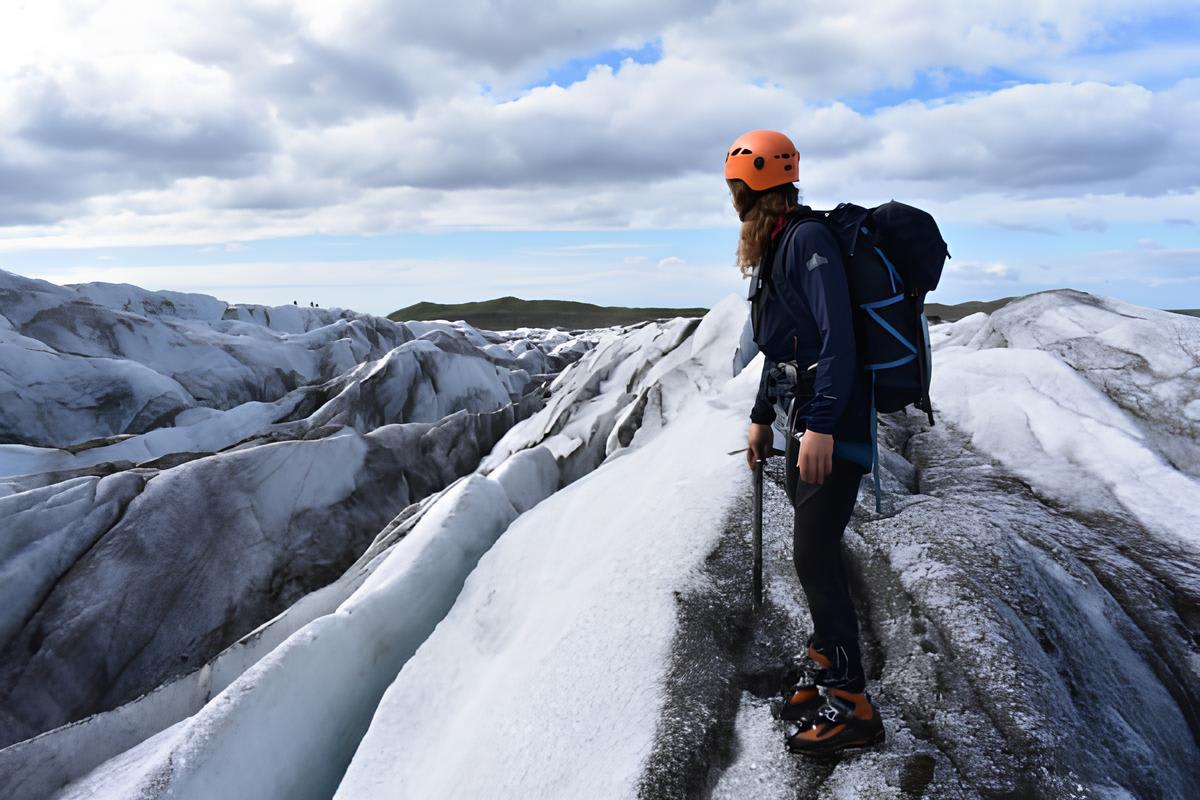
Safety is generally the first reason why clients call on the services of a hiking guide. As the guide is a professional who has all the skills required for safety in the great outdoors, such as first aid, emergency management and even orientation using a GPS or map, his or her presence is very reassuring for people who are looking to challenge themselves but don't have these skills.
In addition to this basic knowledge, which can be applied to any type of hike, guides have a particularly well-developed knowledge of the region in which they work and the type of hike. For example, it is essential to go with a guide for a glacier trek or a high mountain trek that includes via ferrata or climbing. For example, if you want to climb Slovenia's highest peak, a 20 km hike won't be enough! You'll have to follow it up with someclimbing and a via ferrata at the summit of Mount Triglav!
The guide is used to walking the trail on which he is accompanying you, so he will also be able to warn you about high-risk areas and specific weather conditions. Finally, in the event of any unforeseen circumstances, the guide will be able to deal with the problem and advise you on the best alternative.
Your level is also a factor to take into account. If hiking is not a sport that you are used to practising, setting off with a guide will be all the more important. However, even for experienced hikers, being accompanied by a guide can be a good idea. For example, to hike the Trou de la Mouche in the Aravis range, you need alpine experience. However, even with this experience, you'll find it easier to tackle the sometimes missing path, the exposed terrain and the tricky slopes of the trail with the help of a guide.
3. For a simplified organisation
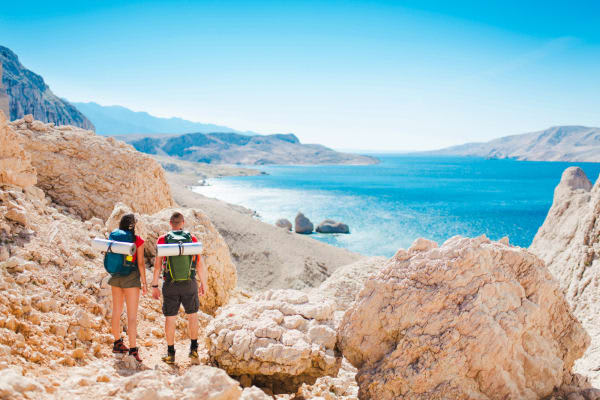
Organising your tour takes work and organisation! You have to think of everything to ensure a safe and comfortable experience, even in the face of the unexpected. A professional guide is used to organising the hike, and because he knows the area well, he can even use his knowledge to prepare in a much more relevant way.
- Logistical organisation of the tour (choice of itinerary, rest areas or bivouacs): the guide is familiar with these aspects and can organise the tour according to your level and the weather.
- Handling formalities: if you need a permit to access the trails or need to book overnight accommodation, the guide can take care of this for you.
- Clothing and equipment: the guide will be able to tell you what you need to have for the hike you're about to embark on and can even lend or hire you equipment.
Don't worry if you're not used to planning such outdoor outings, going on a guided hike is a great way to learn. If you have any questions or doubts, the instructor will be able to help and advise you, taking into account your personal situation. In the meantime, going out with a guide gives you peace of mind and allows you to enjoy your hike to the full!
4. To discover the local flora and fauna
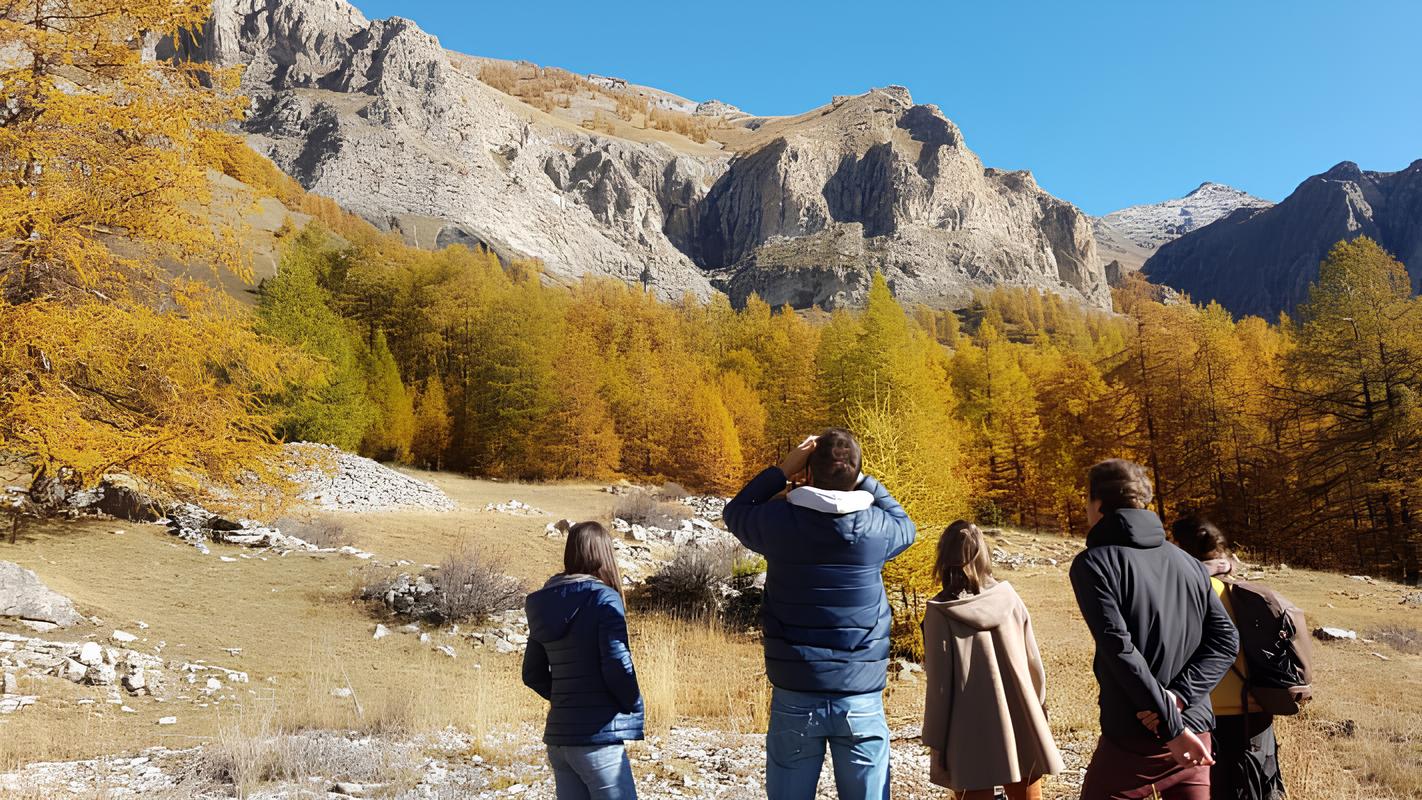
Hiking allows you to immerse yourself in the environment around you. That's why walking in the great outdoors is a unique opportunity to observe animals in their natural habitat, to learn more about their habits or even to identify plants. Your guide will be able to give you the best advice to maximise your chances of spotting certain animals, and will be able to answer any questions you may have.
For example, if you want to watch deer or listen to them bellow in autumn, it's a good idea to go on a guided walk. You'll be able to learn all about the deer and the meaning of their bellowing. In this case, going with a guide is also very important, as it allows you to better respect the animal and avoid disturbing it, which would disrupt its behaviour and reproduction. If this experience appeals to you, the Manawa team recommends this deer slabbing hike in the Mercantour or this guided hike in the Vosges.
5. To find out more about local history and culture
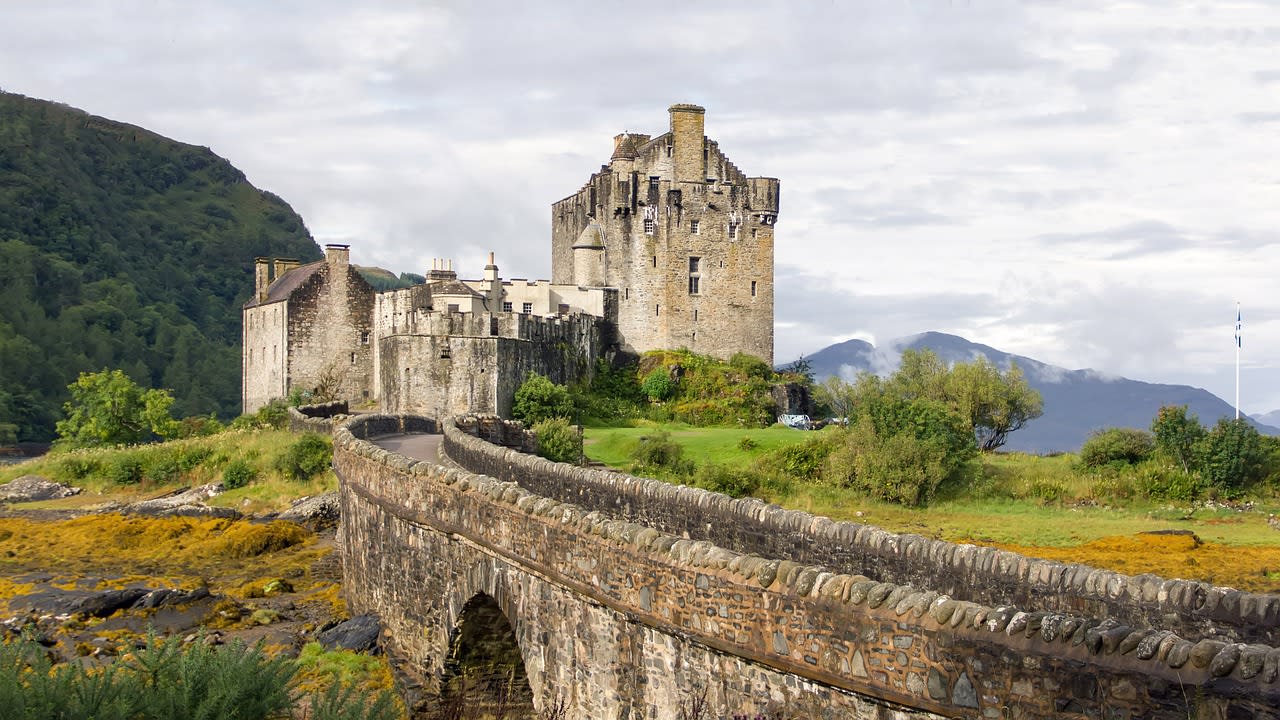
What's the point of going hiking if you don't know where you're going? As you will see, your surroundings will become all the more interesting as you get to know them. In fact, it's not uncommon to find historic or cultural buildings on hiking trails. These relics tell you a lot about the local history and culture of the region, and your guide will be able to tell you how they have shaped its history. For example, this guided hike to the top of Mount Karfi near Heraklion in Crete reveals the ruins of the Minoan civilisation. On a hike near Edinburgh, you'll be amazed by Scotland's cultural wealth and its many castles!
Also, if there are local legends linked to the site where you are hiking, this is your chance to discover them. You might hear stories about trolls on a hike in Norway, or about fairies and mountain spirits on a hike in the Alps.
6. To meet other hiking enthusiasts
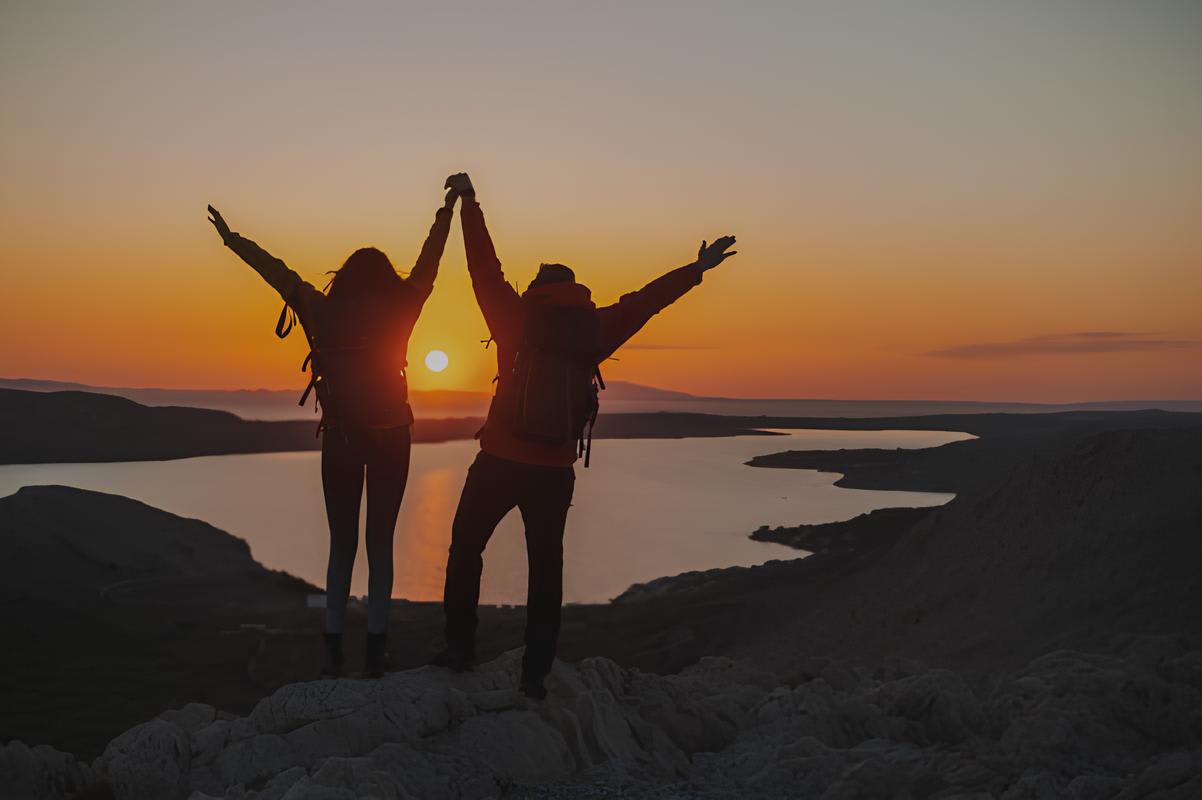
Sometimes it's nice to go hiking on your own. You have more freedom, you can walk at your own pace and stop whenever you like. But if you're passionate about hiking, you're probably also keen to share these moments with other people. In that case, joining a group hike organised by a guide is a very good idea. It's an opportunity to meet people you'd probably never have met otherwise.
Generally speaking, groups of hikers are quite small for safety reasons, but this also makes for a more convivial atmosphere. By hiking with a group, you can easily chat with each person, share your experiences or even enjoy a picnic together! By the end of your excursion, you'll have made new friends with whom you can soon go hiking again!
Bonus: how do you choose your guide?
Going hiking with a guide is bound to be advantageous, but you still need to choose a professional, experienced guide who is right for your project.
Of course, first and foremost, guides must be qualified. He's a professional, so he must have recognised qualifications that attest to his skills. Secondly, he or she must be experienced and a specialist in the region in which you want to go hiking, or in the type of hiking you are interested in. Finally, they must have the human qualities of adaptability, communication and group management.
At Manawa, we only work with professional, experienced guides who can guarantee you a superb hiking experience. Take a look at our guided hiking activities around the world to find the one that's right for you!
Now you have a better understanding of the advantages of hiking with a guide! Whatever your level, this option can bring a lot to the table and make hiking more rewarding. At Manawa, we mainly offer guided hikes because we believe they are one of the best ways to discover a destination easily and safely. Wherever you are in the world, hiking with a guide guarantees a positive, safe and rewarding experience.